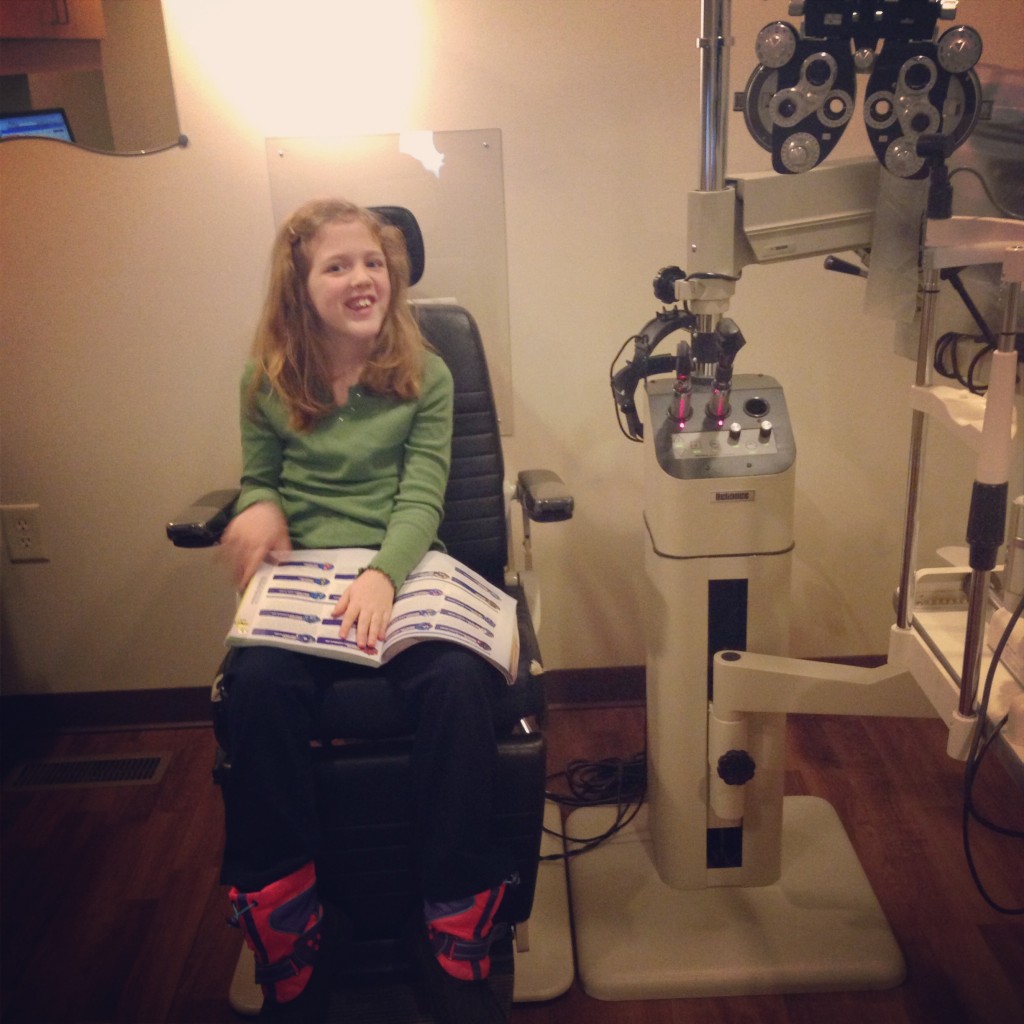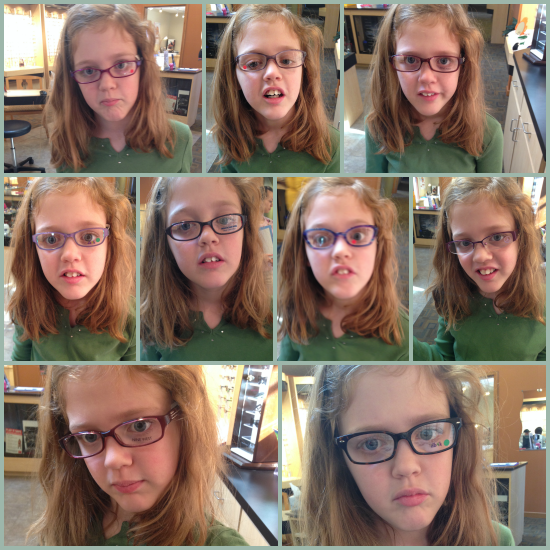Yesterday just after lunch, the phone rang and I recognized the elementary school’s phone number immediately. I answered and one of Cordy’s teachers was on the other end, telling me that Cordy was complaining of a headache, a stomachache and feeling like she could faint.
This hasn’t been the first time I’ve had a call like this. They’ve been somewhat frequent in the past two weeks. At first I thought the headaches and other complaints were due to Cordy’s new glasses. Since the correction for her left eye is so strong, the optometrist said she might feel a little dizzy or get headaches while adjusting to her glasses. In previous calls, I usually recommended that she take her glasses off for a little bit, maybe rest for 15-20 minutes, and then go back to class.
The most recent call before this one, Cordy said she wanted to go home. At that point, I was starting to put together the pieces and noticed a pattern. These complaints of headaches and feeling faint were all coming either just before or during her math class. Which means that feeling sick let her escape math class for a bit. Hmmm. So that time, I told her that if her head hurt that much, she could come home, but that if she did it would be best that she not watch any TV or play any video games that night, so we wouldn’t make the headache worse. Falling for the trick, she immediately told me that her headache wasn’t THAT bad, and she agreed to tough it out the rest of the day.
This time, though, she had added in the stomachache as well. The teacher put her on the phone so I could talk to her. “I feel really sick and think I need to come home, mommy,” she told me.
“Are you sure you’re really sick, and not just nervous about going to math?” I asked.
“Yes, I really am!” she insisted. “I want to go to math and earn all of my points for the day, but I don’t think I can do it because I feel so bad.”
We went through variations of this same questioning a few times, and I reminded her that if she was that sick that would mean she’d have to come home and go to bed – no video games, no TV. She thought it over. “What do you think I should do, mommy?”
“I can’t tell you, Cordy, since only you know how bad you’re feeling. It’s up to you.”
There was a pause. “I think I should come home,” she weakly murmured.
“OK, I’m on my way to get you.”
Cordy suddenly sounded less weak. “Great! I’ll go try my best in class until you get here.”
“Um, no,” I replied. “If you feel well enough to go back to class, I’m not coming to get you.”
“Oh,” she said, realizing her error. “You’re right, I should wait here.”
I told the teacher that I was on my way to pick her up, even though something still felt off to me. I didn’t think she was sick, but was instead trying to get out of her math class. But I also didn’t want to leave her there if she was feeling sick.
When I arrived at the school, the secretary told Cordy that I was there, and she popped up off of the nurse’s cot with a big smile and a hug for me. Again, she didn’t seem sick. When I told her that, she put on her best miserable look, and barely pushed out the words to tell me that she really didn’t feel well.
On the ride home, whenever I looked back she was all smiles, watching the scenery fly by on this sunny day. I reminded her that she had to go right to bed when we got home.
At home, she immediately hugged Cosmo and tried to play with him. I sent her up to bed, tucked her in, and told her to get some rest. I also took her Nintendo DS from her room so she wouldn’t be tempted to play it when I wasn’t watching. Then I went back to work downstairs.
A short while later, I hear her door open. Soon she’s peering down at me on the staircase, eyes bright with a wide smile. “I feel all better now!” she announced. “Can I play on the DS for a little bit?”
So much for being sick.
I still wouldn’t let her have any screen time, but told her she could work on her homework or read a book. We discussed her symptoms from earlier, and she continued to insist that she wasn’t making it up, that she really did have a headache, stomachache and felt faint, but then felt all better at home. I asked if she thought she was just nervous about math, but she again insisted she wasn’t.
Maybe she was faking it all along. Or it’s possible she doesn’t realize her anxiety over her math class is causing her symptoms. I’m a little sad at the thought that math – a subject she’s gifted in, and does so well at when she’s not paralyzed with the fear that she’s doing something the wrong way – could be making her physically sick from worry.
We talking about her feelings and her worries, and I explained how a person can worry so much they make themselves feel sick, and that it’s not healthy to do that. We then discussed ways to help ease worrying, like picturing things that make her happy, or taking a few deep breaths.
I’m hoping that my talk with her yesterday will help her get past this. I don’t want her to see school as a place to run away from. She used to love being there, and couldn’t wait to go back each day. But this year she’s more resistant, and now trying to find ways to get out of school before the end of the day.
I’m crossing my fingers and hoping that there’s not another call home today.











